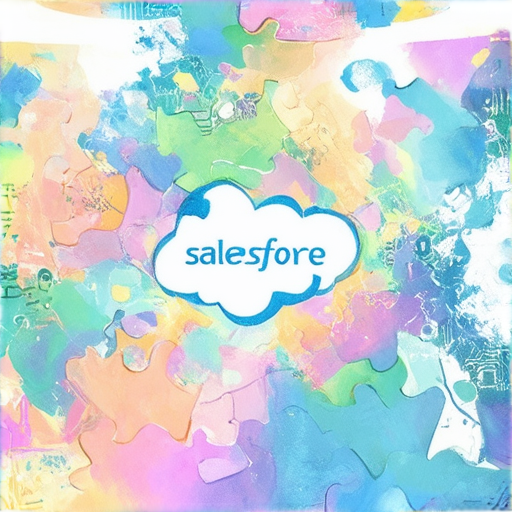As a nonprofit organization navigates the complex landscape of fundraising and donor engagement, selecting the right donor management software can be a daunting task. With numerous options available, it’s essential to understand what sets a robust donor management system apart from others. At its core, a donor management software is designed to streamline processes, enhance communication, and ultimately drive increased donations for your cause. By leveraging cutting-edge technology and intuitive features, these innovative tools empower nonprofits to build stronger relationships with their supporters, maximize impact, and achieve their mission-critical goals.
From cloud-based solutions to specialized fundraising platforms, the world of donor management software offers a diverse array of choices catering to unique needs and preferences. As you embark on your search for the ideal solution, consider factors such as scalability, customization options, and seamless integration with existing systems. By doing so, you’ll be well-equipped to identify the most effective donor management software for your nonprofit, unlocking a brighter future for your organization and the communities you serve.

What is a Donor Management Software?
A donor management software is a specialized tool designed to help non-profit organizations manage their donor database, track interactions, and cultivate strong relationships with supporters. By leveraging this technology, nonprofits can streamline their operations, enhance communication, and ultimately increase fundraising efficiency.
Key Features and Benefits
- Data Organization and Accuracy: A donor management software allows you to store and manage donor information in one centralized location, ensuring data consistency and reducing errors.
- Donor Segmentation and Targeting: With advanced analytics and reporting capabilities, you can segment your donor base and tailor your outreach efforts to maximize engagement and conversions.
- Personalized Communication Tools: Integrated email marketing, social media integration, and automated messaging features enable you to connect with donors on a personal level, fostering loyalty and retention.
- Reporting and Analytics: Real-time dashboards provide valuable insights into donor behavior, helping you optimize your strategy and measure campaign success.
- Integration with Other Systems: Many donor management software solutions integrate seamlessly with popular CRM systems, accounting software, and online donation platforms.
Choosing the Right Donor Management Software
When selecting a donor management software, consider the following factors:
- Scalability**: Can the software grow with your organization, accommodating increasing donor bases and complex needs?
- Customization**: Does the platform offer flexible configuration options to meet your unique requirements?
- User Experience**: Is the interface intuitive and user-friendly, minimizing training time and maximizing adoption rates?
- Security and Compliance**: Does the software adhere to industry standards and regulations, protecting sensitive donor data?
- Cost and Support**: What are the total costs of ownership, including implementation, maintenance, and ongoing support?
By understanding the benefits, features, and considerations involved in choosing a donor management software, nonprofits can select the ideal solution to elevate their donor engagement, fundraising efforts, and overall organizational effectiveness.
Understanding CRM for Donors
CRM stands for Customer Relationship Management, which refers to the process of managing interactions between a nonprofit organization and its donors, volunteers, and other stakeholders. In the context of donor management, CRM systems play a vital role in helping nonprofits build strong relationships with their supporters, increase engagement, and ultimately drive fundraising efforts.
Key Features of a CRM System for Donors
- Donor Profiling: A CRM system allows you to create detailed profiles of each donor, including their giving history, preferences, and interests.
- Communication Tracking: You can track all communication with donors, including emails, letters, and phone calls, to ensure timely and personalized interactions.
- Donation Tracking: Accurately record and manage donations, including amounts, frequencies, and payment methods.
- Reporting and Analytics: Leverage data analytics to gain insights into donor behavior, preferences, and giving patterns.
Benefits of Using a CRM System for Donors
- Improved Donor Engagement: Personalized communication and targeted outreach lead to increased donor loyalty and retention.
- Increased Fundraising Efficiency: Streamlined processes and data-driven decision-making enhance fundraising effectiveness.
- Enhanced Donor Experience: Timely and personalized interactions foster a positive relationship between donors and the nonprofit.
Best Practices for Implementing a CRM System for Donors
- Define Clear Goals and Objectives: Establish specific objectives for your CRM system, such as increasing donor retention or boosting fundraising revenue.
- Choose the Right Tools and Technology: Select a CRM system that meets your organization’s unique needs and integrates seamlessly with existing systems.
- Train Staff and Volunteers: Educate team members on the benefits and usage of the CRM system to ensure effective adoption and utilization.

The Best Fundraising Software for Nonprofits
- DonorPerfect: A popular choice among nonprofits, offering advanced donor management features, online donation processing, and reporting tools.
- Qgiv: Provides a comprehensive platform for fundraising, event management, and donor engagement, with customizable templates and analytics.
- Network for Good: Offers a suite of fundraising tools, including online donations, peer-to-peer fundraising, and social media integration.
- Classy: Designed specifically for nonprofits, this software offers advanced fundraising features, including online events and peer-to-peer campaigns.
- EveryAction: A robust platform for managing donors, events, and fundraising campaigns, with built-in analytics and reporting tools.
- Kindful: Offers a comprehensive solution for nonprofit fundraising, including donor management, online donations, and event planning.
- Little Green Light: A user-friendly platform for small nonprofits, offering basic fundraising features, including online donations and event registration.
- Advocacy Software by Network for Good: A specialized platform for advocacy-based fundraising, allowing nonprofits to create and manage campaigns.
- Give Lively: A simple and affordable option for small nonprofits, offering online donations, event registration, and email marketing tools.
- Submittable: A platform for managing applications, proposals, and other forms, ideal for nonprofits requiring complex submissions.
- VolunteerHub: A volunteer management tool that can also be used for fundraising, with features like online donations and event registration.
- Eventbrite: A popular platform for hosting events, offering integrated fundraising features and seamless payment processing.
- CharityBuzz: A unique platform for hosting auctions and fundraising events, with features like online bidding and donation tracking.
- Social Media Examiner: A platform for managing social media presence, offering tools for fundraising, event promotion, and donor engagement.
- FundRaiser: A cloud-based fundraising platform offering advanced features like online donations, event registration, and reporting tools.
- Altru: A comprehensive platform for nonprofit fundraising, offering features like online donations, event planning, and donor management.
- Changeforgood: A platform for hosting charity runs, walks, and cycling events, with features like online registration and donation tracking.

Effective Strategies for Tracking Donors
To maintain a strong donor relationship and optimize fundraising efforts, it is crucial to effectively track donor interactions.
- Utilize a Comprehensive Donor Database: Implement a robust database system to store donor information, including contact details, donation history, and engagement records.
- Track Donor Involvement: Monitor donors’ participation in events, campaigns, and communications to identify patterns and preferences.
- Personalize Outreach Efforts: Leverage donor data to tailor messaging, highlighting their past contributions and engagement to foster stronger relationships.
- Regularly Review Fundraising Progress: Analyze financial reports to assess campaign effectiveness and adjust strategies accordingly.
- Implement a Donor Segmentation System: Divide donors into categories based on giving levels, interests, and demographics to target tailored appeals and communications.
- Integrate Donor Data with Marketing Automation Tools: Seamlessly connect donor databases with marketing automation platforms to streamline communication and maximize impact.
- Conduct Regular Donor Feedback Surveys: Gather feedback through surveys or focus groups to understand donor needs and preferences, informing future fundraising strategies.
- Develop a Donor Retention Strategy: Create targeted initiatives to retain long-term donors, recognizing the value of loyal supporters in driving organizational growth.
Best Practices for Effective Donor Tracking
By implementing these strategies and maintaining a thorough understanding of donor behavior, organizations can build stronger relationships, increase fundraising efficiency, and ultimately drive greater impact.
Is There a Donor Database?
A donor database is a crucial tool for nonprofit organizations to manage and track their donors, donations, and fundraising efforts.
- What is a donor database? A donor database is a centralized system that stores information about individual donors, including their contact details, donation history, and giving patterns.
- Benefits of having a donor database: A donor database helps nonprofits build strong relationships with their donors, increase fundraising efficiency, and ultimately, boost their bottom line.
Key Features of a Donor Database
A comprehensive donor database typically includes the following features:
- Donor profiling: Detailed profiles of each donor, including demographic information, giving history, and communication preferences.
- Donation tracking: Accurate records of all donations, including amount, date, and frequency.
- Reporting and analytics: Insights into donor behavior, giving patterns, and overall fundraising performance.
Popular Donor Database Solutions
Several donor database solutions cater to the unique needs of nonprofit organizations:
- Bloomerang: A comprehensive donor data management solution offering integrations, reporting, and analytics.
- Network for Good: A cloud-based donor database platform providing advanced reporting and segmentation capabilities.
- Classy: A robust donor database solution designed specifically for fundraising and stewardship teams.
Best Practices for Managing a Donor Database
To get the most out of your donor database, consider the following best practices:
- Regularly update and clean your database: Ensure accuracy and relevance of donor information.
- Use segmentation and targeting: Tailor your communications and solicitations to specific donor groups.
- Monitor and analyze performance: Track key metrics and adjust your strategy accordingly.

Is Salesforce Free for Nonprofits?
Salesforce offers various programs and pricing options for nonprofit organizations, making its platform accessible to those who need it most. Here are some key points to consider:
- Salesforce Pricing for Nonprofits:
- The Nonprofit Success Pack is a free and open-source application available on the Salesforce AppExchange.
- However, non-profit organizations require a paid subscription for access to advanced features and support.
- Enterprise Edition costs $60/month per user, which includes advanced features and support.
- Unlimited Edition costs $100/month per user, offering even more features and scalability.
- Salesforce offers a 50% discount on its standard pricing for eligible nonprofits.
- Additionally, non-profits can participate in the Salesforce Power of Us program, which provides up to 10 free licenses for users.
Key Considerations:
To determine if Salesforce is free for your nonprofit organization, consider the following factors:
- Your organization’s size and complexity.
- The number of users you expect to have.
- The level of customization and integration required.
By carefully evaluating these factors and exploring Salesforce’s various programs and pricing options, you can determine whether its platform is the right fit for your nonprofit organization’s needs and budget.

0 Comments